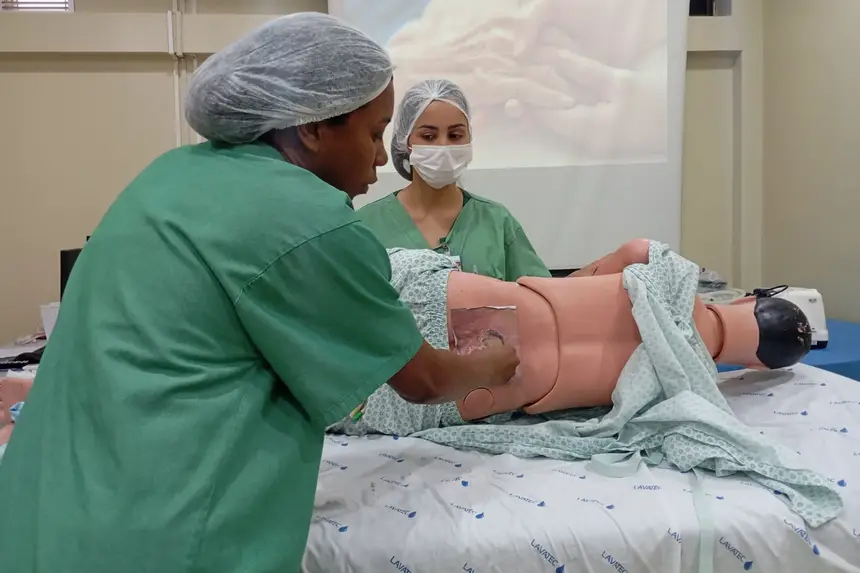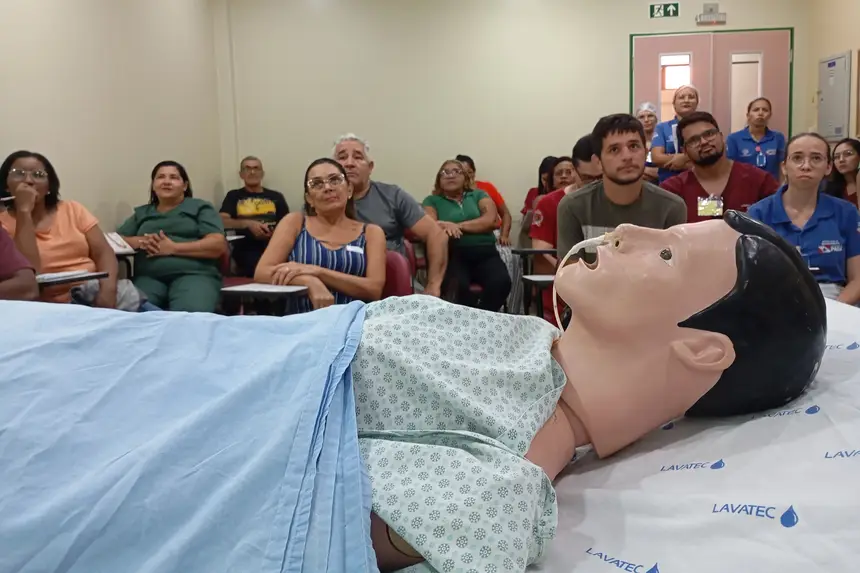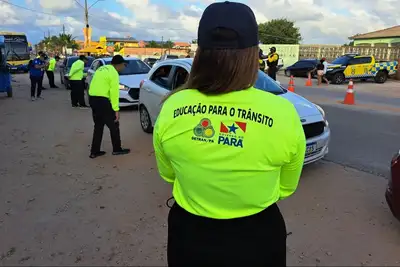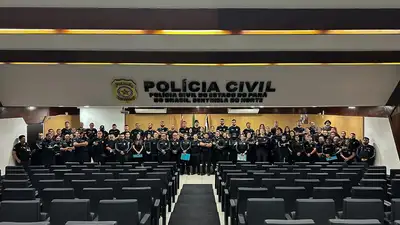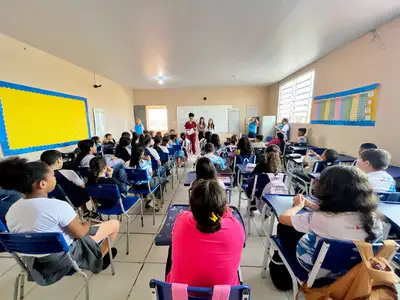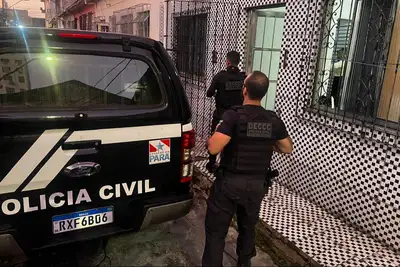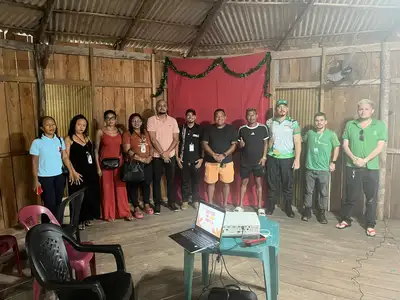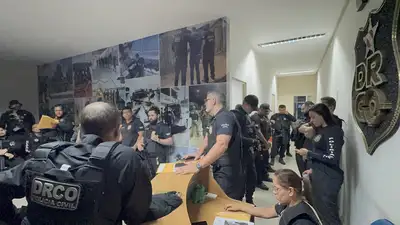Transamazon Hospital trains caregivers and encourages humanization after medical discharge
Training reinforces the need for special attention when the patient is already at home
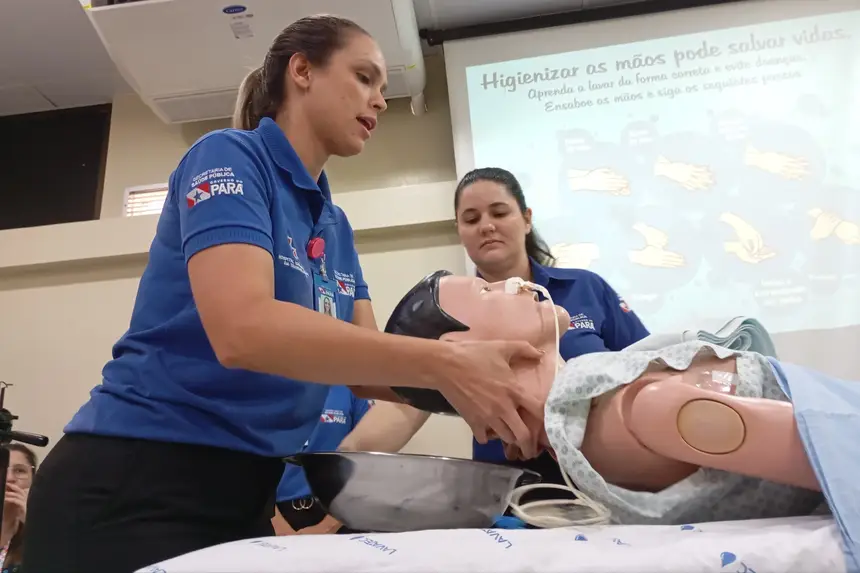
It has been four months since designer Cléber Cândido Silva divides his time between work, household chores, and the Medical Clinic of the Transamazon Regional Public Hospital (HRPT) in Altamira, southwest Pará. The change in the young man's routine was to adapt to the task of caregiver for his younger brother, Fernando, 26, who lost the movement of his body after a serious traffic accident. Fernando underwent two surgeries and currently needs full attention. “The situation is serious because he lost his mobility,” laments the designer, who remains strong. “We will continue this fight.”
Cléber is not an isolated case and is replicated inside and outside hospitals, such as at the Transamazon Regional Hospital, which held a training session for caregivers on Tuesday, October 28. The training provides specialized guidance with multiprofessional teams that work in the largest health unit in the TransXingu axis. One of the idealizers is psychologist Fernanda Lago. “Dehospitalization is a delicate moment that requires emotional, structural, and social reorganization,” she explains, indicating Psychology as a fundamental piece in supporting patients, but also their families.
In the course, which had its first edition at the beginning of September this year, teams from Nursing, Medicine, Psychology, Social Assistance, Nutrition, Physiotherapy, Speech Therapy, and Pharmacy teach theoretical and practical classes. The Wound Commission is also part of the training and is responsible for teaching how the bedridden patient, after being discharged from the hospital, should be assisted at home to avoid pressure sores or to properly clean them.
“Family members are key players in this process, but often feel insecure, overwhelmed, or uninformed. In light of this, there was a need to hold a workshop aimed at providing support, knowledge, and a space for exchange so that they feel prepared and empowered,” reflects psychologist Fernanda Lago.
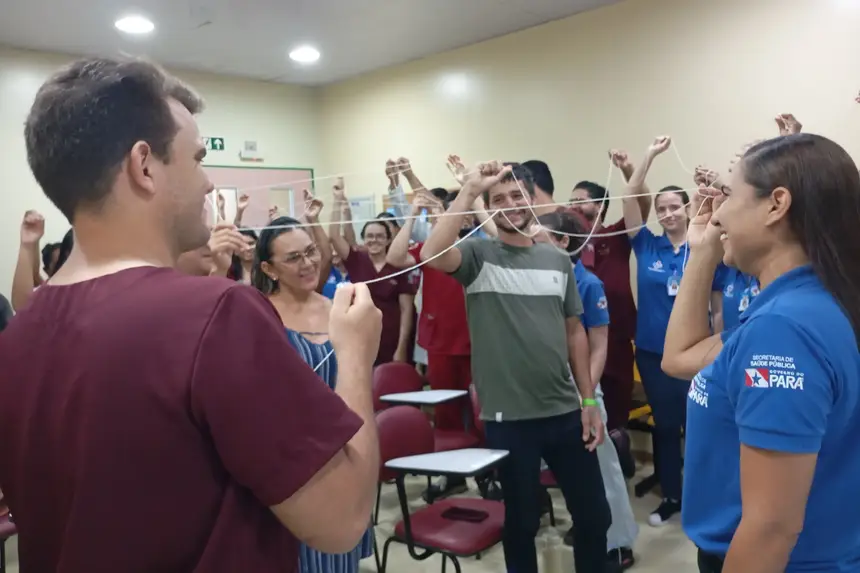
In addition to caregivers of hospitalized patients or those discharged from the Transamazon Hospital, the training also includes those who provide assistance outside the unit, such as Suzana Celestina da Silva, a caregiver at the Boys and Girls Living Space (Ecom), which welcomes minors in situations of social vulnerability and victims of physical and psychological abuse. “I am very grateful for this training at the Regional Hospital, where we cleared up several doubts about the care that the bedridden person needs. It was very beneficial, an afternoon of understanding, very well explained by health professionals,” she praises.
The course has already trained 28 caregivers who, at home, will be able to continue the assistance provided by HRPT professionals, and is now part of the fixed activity calendar of the Permanent Education Center (NEP), the sector responsible for updating and monitoring staff training.
Esther Hoch, Nursing Coordinator, evaluates that “this is a fundamental role for family members to play a more secure role at home, and aims to reduce the risk of infections, and vulnerabilities regarding the devices that the patient will need to use at home, such as catheters and tracheostomy.” Soon, a new training phase will be announced for November.
Text: Rômulo D'Castro - Ascom HRPT


